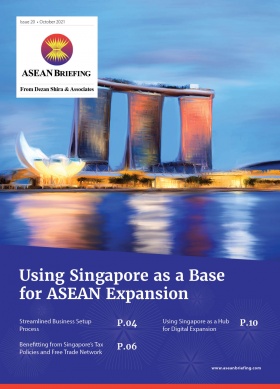Malaysia Issues Tax Exemption for Foreign Sourced Income
The Malaysian government has decided to provide a tax exemption on foreign-sourced income for individual taxpayers, backtracking from their earlier proposal made in the 2022 budget to tax Malaysian residents on their income sourced from abroad.
The categories of foreign-sourced income that are exempt from income tax are the following:
- Dividends received by companies and limited liability partnerships; and
- All types of income received by individual taxpayers.
The income tax exemption is effective from January 1, 2022, until December 31, 2026.
The Chartered Tax Institute of Malaysia has said that the tax exemption on dividends will encourage more investments to be remitted to Malaysia and improve the country’s standing as a destination for regional HQs.
Stamp duty increase
The government has proceeded with the increase of stamp duty for share contract notes as stated in the 2022 budget and the stamp duty cap is increased to 1,000 ringgit (US$238) for each note. Any amount over this limit will be remitted.
The remittance applies to all contract notes from January 1, 2022, until December 31, 2026, for all stocks listed on Malaysia’s stock exchange.
The largest state budget in Malaysia’s history
Malaysia’s 2022 budget is the largest in the country’s history, totaling over 332 billion ringgit (US$80.2 billion). The budget imposes several incentives, financing schemes, and tax measures to help boost post-pandemic growth. As such, the government aims to revive real GDP growth to between 5.5 and 6.5 percent for 2022.
To achieve this goal, the government is keen to broaden the tax base through the introduction of a tax identification number. This will be issued to every person and will become a requirement for all types of transaction documents.Another important tax measure introduced for 2022 is the prosperity tax, also known as the ‘windfall tax’. Under this scheme, companies with chargeable income of more than 100-million-ringgit (US$24 million) must pay an additional nine percent in corporate income tax (CIT), meaning a total of 33 percent in CIT, instead of the previous 24 percent.
The windfall tax is a one-ff initiative to help support government measures against the pandemic.
Other schemes to support businesses include an additional 10 billion ringgit (US$2.4 billion) in funding to assist small and medium-sized enterprises (SMEs) and a further 200 million ringgit (US$48 million) to speed up their digitalization.
The government has also extended the wage subsidy program for employers who hire Malaysians who have not been actively employed. The program provides the following benefits:
- 20 percent of the monthly salary for the first six months; and
- 30 percent for the next six months.
This is subject to employers earning 1,500 ringgit (US$360) per month.
Moreover, the income tax rebate for MSMEs of up to 30,000 ringgit (US$7,200) has been extended for new MSMEs starting operations by December 31, 2022.
About Us
ASEAN Briefing is produced by Dezan Shira & Associates. The firm assists foreign investors throughout Asia and maintains offices throughout ASEAN, including in Singapore, Hanoi, Ho Chi Minh City, and Da Nang in Vietnam, Munich, and Esen in Germany, Boston, and Salt Lake City in the United States, Milan, Conegliano, and Udine in Italy, in addition to Jakarta, and Batam in Indonesia. We also have partner firms in Malaysia, Bangladesh, the Philippines, and Thailand as well as our practices in China and India. Please contact us at asia@dezshira.com or visit our website at www.dezshira.com.







